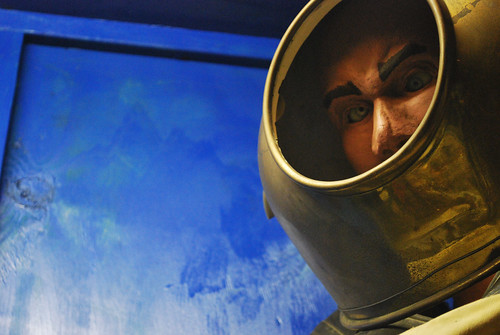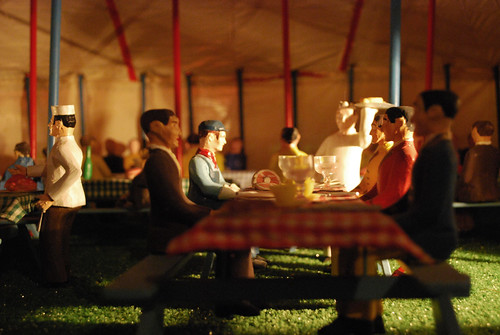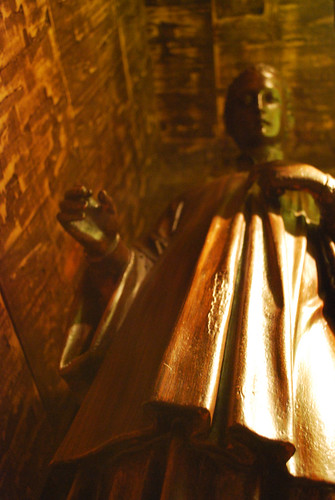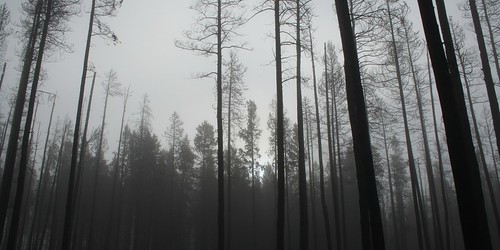
{Photo by rocketlass.]
Any fan of ghost stories knows that some of the best come from writers who are known primarily for mainstream fiction, the sort where the only scares are the usual 3 A.M. existential insomnias. Henry James is the most well-known of those writers, having written enough to fill a fat volume, but he shares company, with, among others, Edith Wharton, Muriel Spark, and Rudyard Kipling, who’ve all also written a book’s worth of ghostly tales. And then there are the here-and-there one-offs from Penelope Fitzgerald, F. Scott Fitzgerald, Willa Cather, Joyce Carol Oates, Donald E. Westlake--the list goes on and on.
But like a classic hungry ghost, I can't help but want more. Herewith, my wish list:
1 Herman Melville. Oh, "The Lightning-Rod Man" comes close--but only in that its lush, overripe language calls to mind Ray Bradbury, and its air of menace feels as if it's building to some supernatural revelation. The fact that it doesn't in no way prevents it from being a great story, mind you. But the autumnal extravagance of this story does make me wonder what Melville might have created had he turned his hand to the world beyond the grave. (Over in the Gotham Ghost Gazette Andrea Janes, meanwhile, has speculated, in a different way, on what might have been: a ghost story not by Melville but of Melville.)
2 Joseph Conrad. In response to a question about Conrad and ghosts I put out on Twitter, Mark Kohut pointed out that not only did Conrad not write any ghost stories that he knew of, but that his story "The Black Mate" was an "anti-ghost story, ghost as con job." But imagine what Conrad's ghosts would be like? They'd be called into existence as much by our own needs as hauntees as by the dead's need to haunt, manifestations of our failures of nerve and honor, our unforgettable regrets, the gnawing acid of our mistakes. They'd certainly not be for the faint of heart two whiskeys in.
3 Barbara Pym. She would be on the other end of the spectrum from Conrad: I imagine Pym's ghost stories being gentle, even cozy. The vicarage would be haunted, manifested by spoilt milk and wobbling mint jellies; the ghost would be the source of quiet worry, its relatively benign activities nonetheless way too far beyond the pale to be acknowledged in polite company, especially as it would be at its most active when unrequited crushes begin to rear their unmentionable heads. Decorum would be at risk of disruption, desire, as always, however, ultimately thwarted by reticence. The ghost, like love, would move on.
4 Rex Stout. Wouldn't it be fun to have Nero Wolfe confronted with an actual, honest-to-goodness ghost, one he couldn't banish with a "Bosh!"? Inconceivable, I realize--Stout's world has no truck with nonsense, and Wolfe would, I suspect, continue to deny the supernatural even in the face of the strongest evidence. But what fun it would be to see the battle of wits and clash of stubbornness that could ensue between two such powerful forces!
5 Iris Murdoch. Murdoch's ghosts would, I trust, be like her characters generally: flighty, impressionable, headlong, emotional. They would haunt because of love, be banished by clarity, wreak havoc in between.
These are my five. Yours? (But let's be clear: I get the first crack at wishing for these when that damned monkey's paw turns up! Then you can go. It's not like anything could go wrong, right?)








